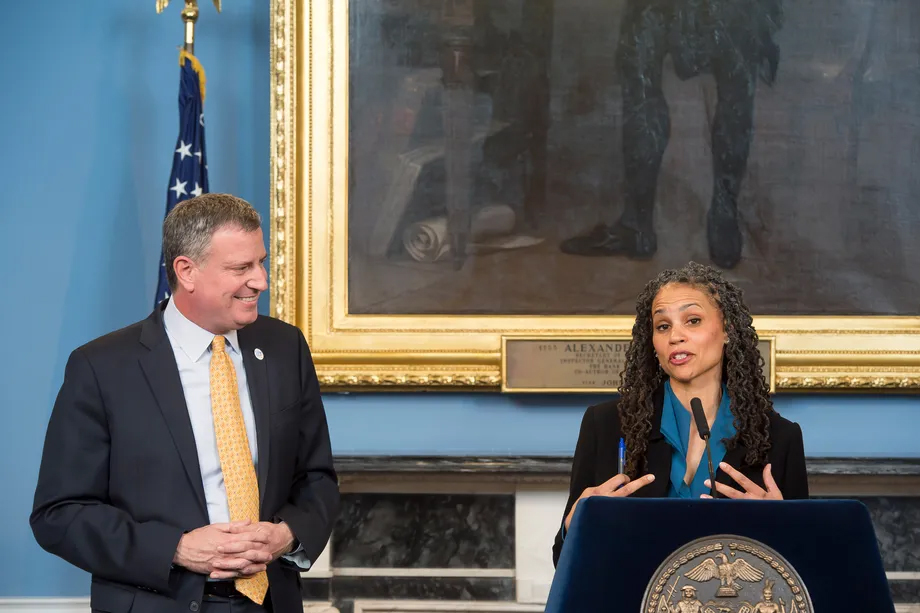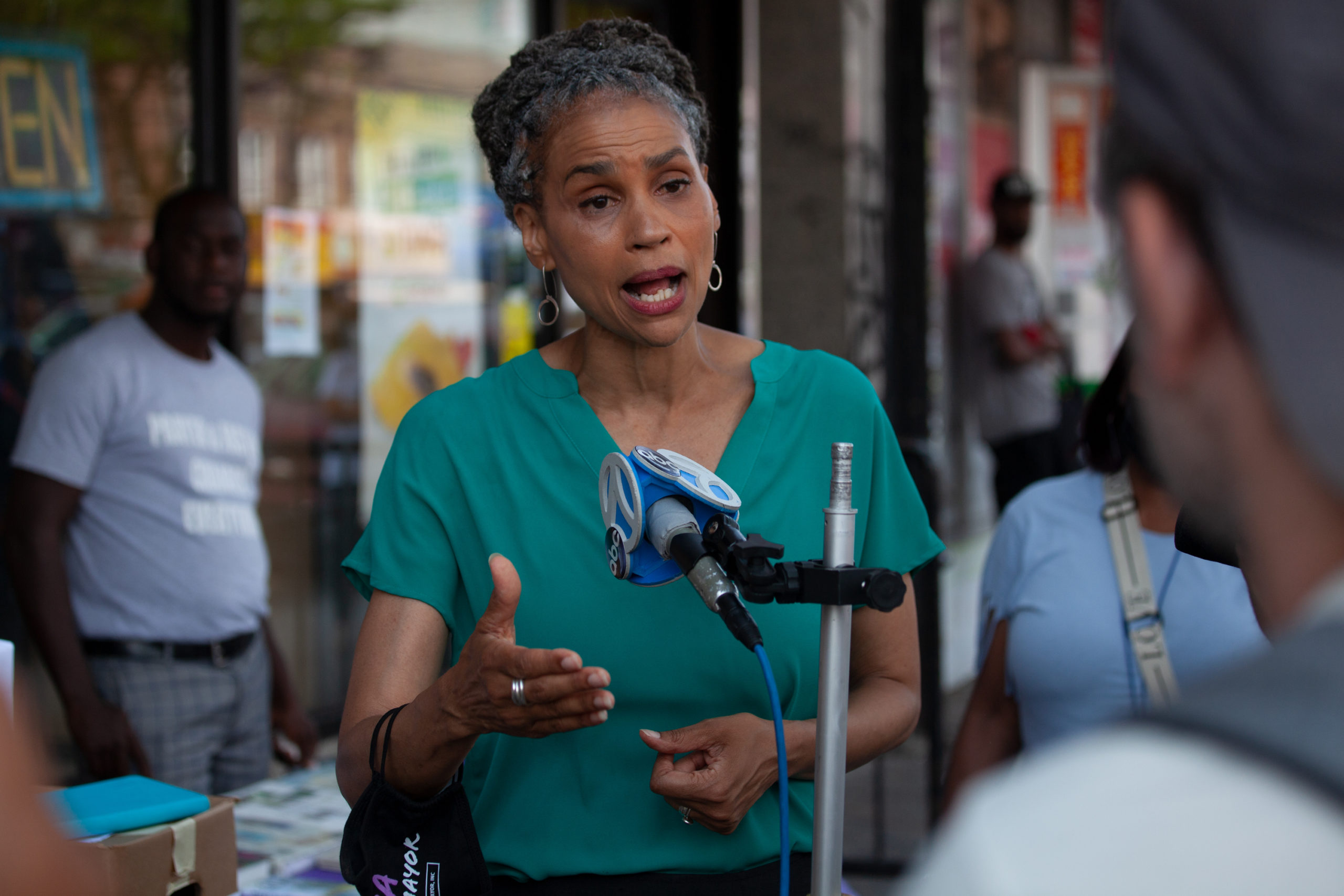What’s next for former New York City mayoral candidate and civil rights lawyer Maya Wiley? She says she isn’t going to run for governor. But she still wants to see her plan to provide universal community care for children and older adults realized.
“There is no reason why our child care plan can’t become reality,” said Wiley, who came in third in the June Democratic mayoral primary won by Brooklyn Borough President Eric Adams. “It’s just a matter of political will.”
During the campaign, Wiley put forth an ambitious child and elder care platform, which would have given $5,000 to 100,000 “high need” families in New York City to help with the costs of providing care to children, older adults and other family members. Wiley’s plan, developed in deep consultation with community activists and other stakeholders, would have also created community care centers in every borough.
“Even before COVID … families, and particularly women, were overwhelmingly bearing the burden of trying to figure out quality childcare in order to be able to work,” Wiley told THE CITY and The Fuller Project. “It’s not just about whether there is a [care] subsidy, which we need, but that there’s a place where people can go and that place is also in [the] community.”
In 2019, a city comptroller report found that half of New York’s community districts were infant care deserts. In 10 neighborhoods, including Bushwick in Brooklyn and Sunnyside in Queens, there were more than 10 times as many infants as child care slots.
Wiley says she has spoken to Adams since the election, but that they’ve yet to discuss her child care platform, which would have drawn money from the NYPD’s budget, among other sources.
Adams, a former cop who has spoken out against the “defund the police” movement seeking to redistribute police department funding to social programs, has suggested he is open to using federal stimulus funds to increase the NYPD’s budget.
“We should utilize the money to stabilize crime in the city,” Adams said at a news conference after his primary victory, according to the New York Post.
“That’s an area where Eric and I differ,” said Wiley, whose plan would have shifted $300 million from the NYPD and Department of Corrections budgets by reducing future hiring of police officers and corrections officers. That would have decreased the number of NYPD officers by 2,500 over two years.
‘Historic inflection point’

Adams has pledged universal child care — proposing tax breaks to building owners who provide free child care space, expanding a tax credit for low-income families, and opening community-based health and care centers in low-income neighborhoods.
Other candidates including runner-up Kathryn Garcia, who pledged to make child care free for parents with children 3 and under making less than $70,000 a year, and New York City Comptroller Scott Stringer also promised investments in child care. Stringer’s plan would have invested $500 million in five years to tackle child care deserts and expanded access to the city’s child care voucher program for children 3 and under.
Adams is unlikely to divert the kind of money Wiley proposed shifting from policing into community-based care.
But All our Kin, a nonprofit focused on family child care providers, says the money already in the city’s budget and the federal child care block grants would give an Adams administration an “enormous” opportunity to improve New York’s care systems.
“We’re looking at a historic inflection point for child care in New York City,” said Jessica Sager, All our Kin’s co-founder and CEO. “Eric Adams has said it is a moral imperative for us to provide universal child care. And we’re so excited about that.”
Adams’ campaign declined to comment for this story.
Wiley says she took a break after an “exhausting” campaign. However, after the general election in November, the former MSNBC contributor expects to help push for the ideas in her care proposal. “The child care proposal I put forward as a candidate for mayor was not just the Maya Wiley proposal,” Wiley said. “It really was about a plan and a vision for the future of the city and for our people.”


 Jessica Washington
Jessica Washington
